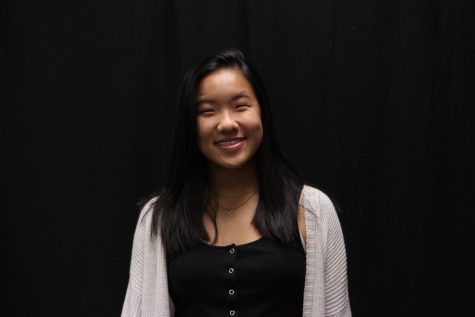Talking about student-made podcasts
May 25, 2020
Creative outlets differ from person to person. For some, it may be drawing, and for others, it may be writing. For senior Riddhi Somani and freshman Khushi Nigam, their creative outlets are in the form of podcasts. In their podcasts, they discuss various aspects of their daily lives as students and offer advice to those who may be in similar positions.
Podcasting is an audio-based episodic platform where hosts are able to talk about a wide variety of topics. Podcasts are range in length as well as overall target market. Much like video-streaming platforms, hosts are able to receive sponsorships with podcasts, as well as gain a large following with these audio episodes.
Somani hosts Little Seeds of Knowledge (LSK), a podcast that explores the various aspects of student life, while educating listeners on topics including business, tech and politics. Somani started the podcast in Aug. 2019, and has continued to record episodes periodically since then.
LSK is not a podcast that shys away from more in-depth topics. In episode 5, Somani invited one of her close friends, Nisha Ramanathan, to join her in a conversation about mental health in high school. LSK also discusses more niche topics, such as growing up in Silicon Valley.
LSK’s target market is simply those who want to learn something new. Somani was heavily influenced by podcasts that she listened to when she started her own. She lists National Public Radio podcasts as one of her main sources of inspiration, specifically Planet Money and Hidden Brain. Even when folding laundry or cleaning her room, she puts on a podcast to be able to multitask freely.
“I think podcasts are a great way to learn about something without having to do a lot of work,” Somani says. “Podcasts are extremely versatile, so you can listen to a podcast and do another task at the same time.”
Starting a podcast may seem daunting at first, but it does not have to be difficult. Somani uses only a microphone and her computer, allowing her to easily edit without complicated recording tools or editing software. She makes it a point to listen to the audio while recording to make sure everything is running smoothly.
Although starting a podcast is relatively simple, maintaining consistency throughout podcasting can be hard, and the workload can often pile up quickly. Somani took a break from Dec. 2019 through Jan. 2020 due to finals, but has gotten back into the groove of recording episodes since then.
“It’s hard to find inspiration sometimes,” Somani says. “I haven’t really figured out where I want to take this yet, but I hope to branch out into a blog or more social media platforms.”
Similarly, Nigam’s podcast TeenTalkB4Bed (TTB4B) also discusses student life. However, Nigam tries to take a shorter approach to podcasting, gearing the episodes towards those who like to listen to podcasts before drifting off to sleep.
TTB4B episodes are typically 8 minutes long and are uploaded on a weekly basis. Nigam talks about a certain topic for around 3 minutes, and then plays relaxing music for her listeners for the rest of the podcast.
In the past, Nigam herself often struggled with falling asleep. She tried multiple methods to help her sleep, including sleep hypnosis, but nothing seemed to work. Then, when she turned to podcasts as another option, she was frustrated by the lack of high school specific options. Realizing that sleep podcasts targeted toward teens was a possible market, Nigam decided to start TTB4B.
Nigam also talks about various aspects of high school, like stress, time management and dealing with failure. The aim of TTB4B is to educate students on how to lead a healthy and mindful lifestyle. She also poses a dare to listeners each week to take action in their lives so that they leave a positive impact on those around them.
“Mental and physical wellbeing is often overlooked in high school,” says Nigam. “I feel that if you can maintain your overall health, then you’ll be a lot stronger and will be able to score a lot higher.”
Nigam hopes that talking about bad habits, such as procrastination and binge-eating, that high schoolers may have will raise awareness for students. With this awareness, Nigam believes that students will be able to fix these habits and to grow into more capable adults.
Much like Somani, Nigam only uses an Amazon microphone and her laptop to edit and record TTB4B. And although she is only six months into her podcasting journey, she has already gained a loyal following.
“All the work I’m putting into my podcast is definitely paying off,” says Nigam. “I’m already seeing the rewards at such an early stage, and I’m really glad that I have a platform to speak out about real issues that high schoolers struggle with.”
Both TTB4B and LSK bring awareness to student life in a platform that is traditionally geared towards adults and older audiences. Podcasts are slowly becoming a larger platform for self-expression slowly growing in our own Lynbrook community, starting with Somani and Nigam.



























































